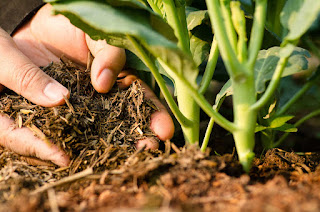How Climate Change Impacts Agriculture 🌾 #sciencefather #academicachievements
Climate change is having a profound impact on agriculture, influencing everything from crop yields to farming practices and food security. As global temperatures rise, so too do the challenges facing farmers and food producers.
Temperature Increases and Crop Yields
One of the most direct effects of climate change on agriculture is the increase in average temperatures. Warmer temperatures can lead to heat stress in crops, which adversely affects their growth and productivity. For example, staple crops like wheat, maize, and rice are particularly sensitive to high temperatures, which can reduce their yields and impact quality. Heat stress can also cause plants to mature faster, leading to reduced yields and lower nutritional content.
Climate change is altering precipitation patterns, resulting in more frequent and severe droughts in some regions and increased rainfall and flooding in others. Droughts can lead to water shortages, making irrigation more challenging and costly, while heavy rainfall and flooding can damage crops and erode soil. These changes not only affect crop yields but also disrupt planting and harvesting schedules, leading to further economic uncertainty for farmers.
Shifts in Growing Seasons and Crop Zones
The warming climate is causing shifts in growing seasons and crop zones. Many regions that were once too cold for certain crops are becoming suitable for cultivation, while areas traditionally known for specific crops may become less viable. This can lead to new opportunities but also requires farmers to adapt quickly to changing conditions and consider planting new types of crops. Additionally, some pests and diseases that were previously limited to specific regions may spread to new areas, further complicating agricultural practices.
Soil Health and Fertility
Soil health is another critical aspect impacted by climate change. Increased temperatures and altered precipitation can lead to soil degradation, reduced fertility, and increased erosion. Healthy soil is vital for supporting plant growth, so its decline can have significant implications for crop yields and sustainability. Farmers may need to implement new soil management practices to mitigate these effects and maintain soil productivity.
Economic and Social Implications
The impact of climate change on agriculture has broad economic and social implications. Reduced crop yields and increased production costs can lead to higher food prices, which disproportionately affect low-income communities. Additionally, farmers may face increased financial pressures due to the need to invest in new technologies or adapt their practices to cope with changing conditions. This can exacerbate existing inequalities and stress rural economies.
Adaptation and Mitigation Strategies
To address these challenges, farmers and agricultural experts are exploring various adaptation and mitigation strategies. These include developing heat-resistant crop varieties, improving water management techniques, and adopting sustainable farming practices. Additionally, there is a growing focus on integrating climate-resilient practices into agriculture to better prepare for future changes and ensure long-term food security.
In summary, climate change poses significant challenges to agriculture, impacting crop yields, precipitation patterns, soil health, and economic stability. While the effects are complex and multifaceted, ongoing research and adaptation efforts are crucial for mitigating these impacts and building a more resilient agricultural system.
"International Academic Achievements and Awards"
Visit our website : https://academicachievements.org/
To Contact us: contact@academicachievements.org
Awards Nominate : https://academicachievements.org/award-nomination/?ecategory=Awards&rcategory=Awardee
Get Connected Here:
Facebook : https://www.facebook.com/profile.php?id=100092743040677
Twitter : https://x.com/VineetaSingh28
Instagram : https://www.instagram.com/vineetasingh027/?hl=en
YouTube : https://www.youtube.com/@AcademicAchievements








Comments
Post a Comment